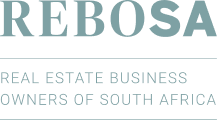Estate Living on the Rise in South Africa
Category Market News
The property market in general has seen some interesting trends over the past few months, which we have explored - this one is no different.
Paul-Roux de Kock, Analytics Director at Lightstone, recently presented at a conference where he showcased noteworthy figures relating to the estate property market, which is of immense value, not only to property professionals, but to consumers as well.
When looking at the 6.2 million residential properties within South Africa, which totals R4.3 trillion in value, estate property makes up 5.1% of that total volume and accounts for approximately 15.1% of the overall property market value. This is a noteworthy figure, especially when considering the increasing market activity for the estate property market over the past few years which shows strong growth in both the volume and value of estate sales.
Our research of approximately 6 500 closed communities and estate properties (including coastal, lifestyle, country, wildlife, equestrian and polo, and golf estates) has found that the total Rand value locked up in the estate market is now close to the total value of that of all residential properties within the City of Johannesburg. We have also found that over 50% of estate properties are located in Gauteng, with a further 25% in the Western Cape.
Interestingly, the national average cost for a property in South Africa is R700 000, whereas the average price of a property within an estate is R2 million – nearly three times the national average. When looking at a breakdown of estate property values, 9.9% of estate properties are worth over R3 million in value, 29.7% are in the range of between R1.5 million – R3 million in value, and 25.4% are within the R1 million – R1.5 million value range. This equates to two thirds of total estate properties valued at more than R1 million each.
Of those properties within estates, how many are bonded? Whilst there is almost an equal split of estates that are bonded (51%) to those that are not bonded (49%), the bonded estate properties make up 62.4% of the total bond value. That’s a big chunk of the overall value.
In analysing the 10 most expensive estates across South Africa, the majority can be found in Johannesburg, with Villa Santini in Sandhurst topping the list with a median value for a property within the estate setting you back approximately R17 400 000. Silverhurst Estate in Cape Town came in second place with a median value of around R16 250 000.
The highest valued estates were identified by finding the estates with the highest median value (using the Lightstone Automated Valuation model) The median value is preferred over the mean average, as it eliminates the effect of extreme values which can influence the average value in estates with wide-ranging or disparate values. It is interesting to note that all the above mentioned estates are classified as low density estates – with a fewer number of properties; each property holding an incredibly high value.
However, when analysing estates with the highest number of active properties, we get a different set of results, as can be seen in the table below:
Mooikloof Ridge Estate in Pretoria tops the chart as the estate with the highest number of properties (majority of which are sectional title scheme), followed by Midlands Estate in Clayville; and Burgundy Estate in Milnerton, in third place.
The estate with the highest number of property transactions is Midlands Estate, which saw 1 201 properties transacted in the last five years, followed closely by Mooikloof Ridge Estate, which had 1 197 properties transacted. It is noteworthy that some of the estates that have had the highest number of transactions in the last five years also fall within the top 10 largest estates list.
It should come as no surprise that estate living is on the rise as more South Africans are seeking properties that offer a heightened level of security and provide better investment opportunities for them. These, however, are not the only factors adding to the appeal of estate property buying. The fact that more developers are including lifestyle elements into their estates (such as catering for pastimes such as golfing and fishing; with some going as far as incorporating hospitals and schools within the estate property), ensures that those looking to purchase property within an estate receive maximum value for their investment.
“Although luxury-market buyers are under pressure, the estate-housing market in general doesn’t dip as low or peak as high as the rest of the luxury market. We therefore expect it to outperform the luxury market during the current downturn,” De Kock concludes.
Article courtesy of Lightstone
Author: Lightstone







